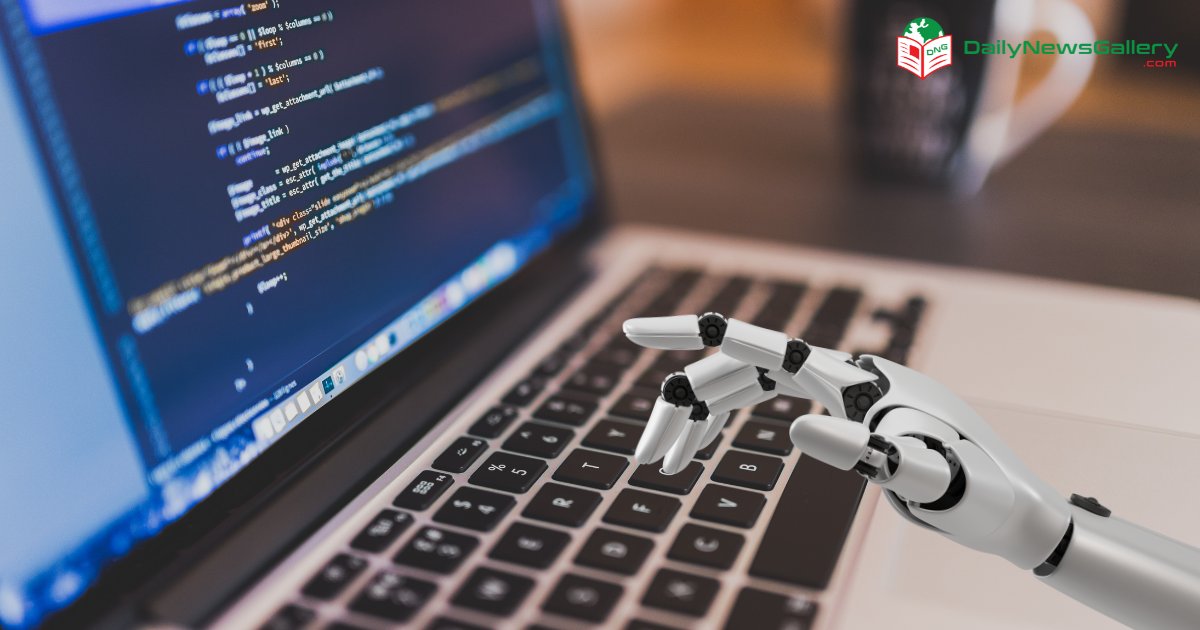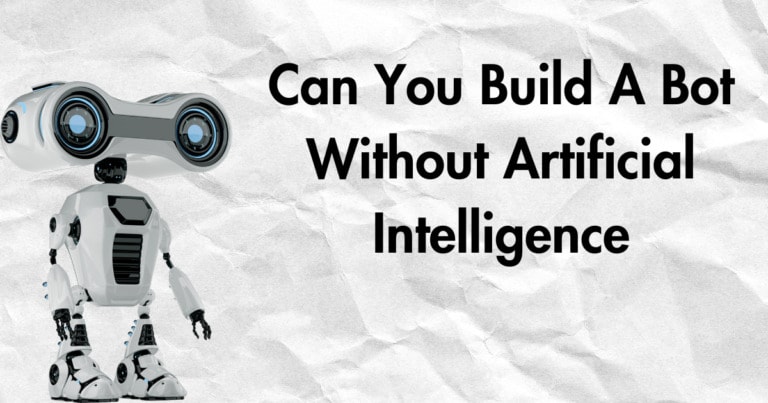
The dawn of the 21st century brought with it a technological marvel: Artificial Intelligence (AI). As AI continues to evolve, industries across the globe are grappling with a pressing question: Will AI replace human jobs? The field of programming, the very backbone of AI, isn’t immune to this speculation.
Quick Answer to Can AI Replace Programmers: No, AI will not replace programmers because they don’t have their own power to think, so they will miss creativity. Also teaching a programmer what you want is far easier than teaching an AI.
What is AI?
AI, in its essence, is a machine’s capability to mimic human cognitive functions such as learning, reasoning, and problem-solving. It’s not just about robots; it’s about algorithms, neural networks, and data-driven decisions.
Now let me explain it a little bit more,
Artificial Intelligence, commonly referred to as AI is a branch of computer science that aims to create machines that can mimic human cognitive functions. At its core, AI is about building algorithms that allow computers to perform tasks that typically require human intelligence.
The Role of Programmers
Programmers, often seen as the wizards of the digital age, weave intricate lines of code to breathe life into software.
Their expertise isn’t just in writing code but in understanding and solving complex problems. However, with AI’s rapid advancements, there’s a looming shadow over their future.
The Rise of AI in Programming
AI-Driven Development Tools
From auto-completing code to predictive debugging, AI-driven tools are revolutionizing the programming landscape.
Tools like DeepCode and Kite harness AI to provide real-time code assistance, making the development process smoother and faster.
Machine Learning in Code Generation
OpenAI’s Codex or Google’s BERT are testaments to how machine learning models can generate code snippets based on natural language queries.
This not only speeds up the development process but also makes programming more accessible to non-programmers.
Advantages of AI in Programming
Efficiency and Speed
AI’s ability to process vast datasets swiftly means it can optimize code, detect anomalies, and even predict future issues, ensuring a smoother and faster development process.
Error Reduction
Human error is inevitable. However, AI can drastically reduce these errors. By analyzing thousands of codebases, AI can identify potential pitfalls and bugs, ensuring a more robust final product.
Limitations of AI in Programming
Lack of Creativity
AI, for all its marvels, lacks human creativity. It operates based on data and patterns. Can it ideate a groundbreaking app or visualize game-changing software? Probably not.
Dependence on Data
AI’s prowess is directly tied to the quality and quantity of data it’s trained on. Inaccurate or biased data can lead to flawed outputs, making human oversight crucial.
The Future Of AI: Collaboration or Replacement?
The Synergy of Humans and AI
The future might not see AI replacing programmers but rather working alongside them. Imagine a world where programmers set the vision, and AI aids in its realization, combining human creativity with machine efficiency.
The Ongoing Debate
The discourse around AI’s role in programming is polarized. While some see AI as a tool that augments human capabilities, others fear total replacement. The truth, as always, might lie somewhere in between.
The interplay between AI and programming is intricate. While AI offers numerous advantages, it’s essential to recognize its limitations. The future might be less about AI vs. Programmers and more about AI and programmers, a synergy that harnesses the best of both worlds.
FAQs
- Will AI completely replace programmers?
- It’s unlikely. While AI can assist in many tasks, the creativity and expertise of human programmers are irreplaceable.
- How can AI assist programmers?
- AI can help in code optimization, bug detection, and even code generation to some extent.
- Is AI-driven code as efficient as human-written code?
- While AI can generate code quickly, it might not always be as efficient or creative as human-written code.
- What are the limitations of AI in programming?
- AI lacks creativity, is heavily dependent on data, and might not understand the nuances of specific problems like humans.
- How can programmers stay relevant in the age of AI?
- By continuously learning, adapting to new tools, and focusing on areas where human intuition and creativity are paramount.
- What’s the difference between AI and Machine Learning (ML)?
- While AI is a broader concept focused on machines mimicking human intelligence, ML is a subset of AI that specifically deals with the training of algorithms to learn from and make decisions based on data.
- How is Deep Learning related to AI?
- Deep Learning is a subfield of Machine Learning that uses neural networks with many layers (hence “deep”). It’s particularly useful for complex tasks like image and speech recognition.
- Is AI limited to just computers?
- No, AI can be integrated into various devices, from smartphones to home automation systems and even cars.
- Will AI take over human jobs?
- AI will likely automate certain repetitive tasks, but it’s also expected to create new job categories. The key will be for the workforce to adapt and upskill.
- Is AI infallible?
- No, AI can make mistakes, especially if the data it’s trained on is flawed or biased. Human oversight is essential.
Artificial Intelligence, often hailed as the frontier of technological innovation, is reshaping the contours of industries, economies, and daily life. Its ability to mimic human intelligence, learn from data, and automate complex tasks holds immense promise for the future.
However, like any powerful tool, its application comes with responsibilities. Ethical considerations, job implications, and data security are just a few of the challenges we must address as we navigate the AI-driven landscape.
As we stand on the cusp of this AI revolution, it’s imperative to approach its integration with a blend of optimism, caution, and informed understanding. Only then can we harness its full potential for the betterment of society.






